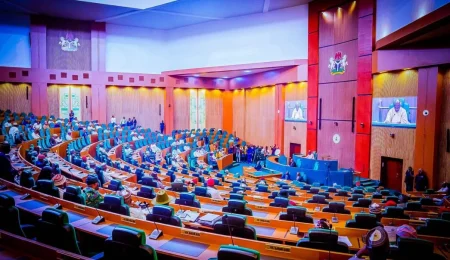At the 297th Monetary Policy Committee (MPC) meeting held at the Central Bank of Nigeria (CBN) headquarters in Abuja on Tuesday, the CBN governor, Olayemi Cardoso announced a series of measures aimed at tightening monetary policy to address ongoing economic challenges. The committee unanimously decided to raise the Monetary Policy Rate (MPR), which benchmarks interest rates, by 50 basis points to 27.25%, up from 26.75%.
In addition, the MPC adjusted the cash reserve ratio for deposit money banks, increasing it by 500 basis points to 50% from 45%, while merchant banks saw an increase of 200 basis points to 16% from 14%. The liquidity ratio was retained at 30%.
Cardoso said, “The committee was unanimous in its decision to further tighten policy and thus decided as follows:
- Raise the MPR by 50 basis points to 27.25% from 26.75%
- Retain the asymmetric corridor around the MPR at +500 to -100 basis points
- Raise the cash reserve ratio of deposit money banks by 500 basis points to 50% from 45% and Mercahnat banks by 200 basis points to 16% from 14%
- Retain the liquidity ratio at 30%.”
The committee noted a moderation in headline inflation for July and August 2024, alongside relative stability in exchange rates across market segments, a positive effect of the bank’s tight monetary policy, which is “expected to improve confidence which will enable economic agents to plan in the medium to long term.” However, concerns remained regarding elevated core inflation driven by rising energy prices.
Cardoso said, “The committee was however unanimous in recognising that a lot more is required to actualise the bank’s price stability mandate. The MPC noted that even though headline inflation trended downwards, due to a moderation in food inflation, core inflation has remained elevated, driven primarily by rising energy prices.”
The MPC emphasised the need for collaboration with fiscal authorities to address the upward pressure on energy costs, recognising the continued growth in money supply and the importance of curbing excess liquidity.
Challenges such as flooding, energy price hikes, and security issues in farming communities pose risks to food inflation. Nonetheless, the committee expressed optimism that the operations of Dangote Refinery would help reduce transportation costs, alleviating food price pressures in the near future.
The CBN remains committed to its price stability mandate, focusing on closely monitoring fiscal releases and their impact on inflation.
Melissa Enoch
Follow us on:



